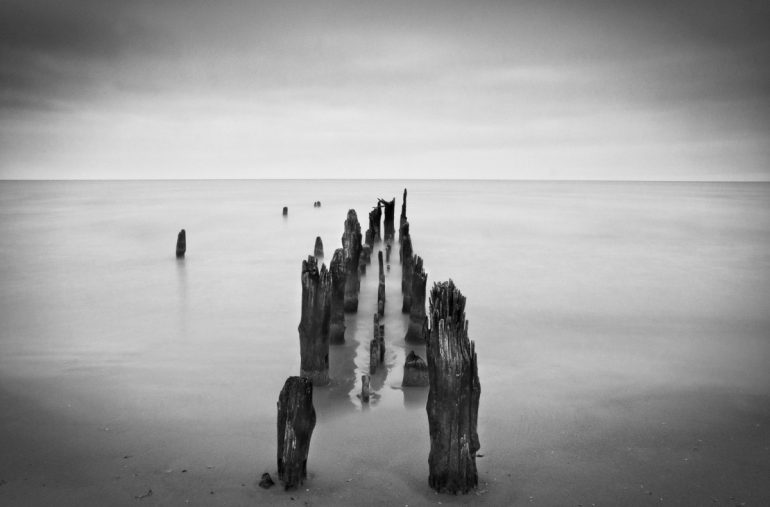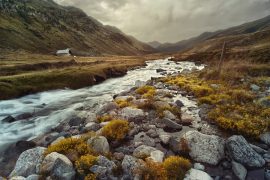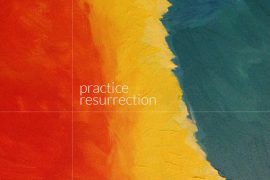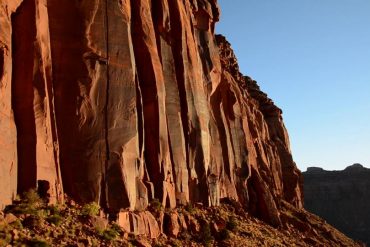A Time to Tend
It was sunny and 74 degrees when I got a phone call that Art, the grumpy old widower, was about to die. Since I was the only one resembling a preacher at the church listed in his patient file, the hospital called me. The real preacher, who was away on sabbatical, had left me, a twenty-year-old pastoral intern and newlywed, with the keys to the small country church for a few weeks.
When I arrived there, Art was alone in every sense of that word, dying from black lung and suffering terribly. When he opened his mouth, what came out was as foul as his coal dust laced exhalations. I could smell it, the coal dust mixed with blood.
No one wanted to be around a person clinically manic and so unpredictable. Though well into his 80s, he was strong as a mule. He had chased off his family many years earlier and I knew that the odds were pretty good that, with the real preacher gone, there would only be one person in attendance at his burial—me. He had become so inhospitable, unpredictable, and unlikable. His health was a lost cause, and all that was left was a fight to the death. He refused medication and seemed to want to suffer.
Knowing I had nothing to offer, Art said as much to my face. He was right, too. I had planned to go fishing with my wife that afternoon because the weather was heavenly. The smell of this dying man’s breath was making me nauseous. Intent but halfhearted about dispensing my ministerial duty, I asked, “There is no one else here, Art?”
“Why would anyone be here?” he rattled.
It became clear to me in that moment that this man wanted to pass unattended—alone. He did not ask me to be there. But I was—and death was coming. How could it be that attending to an ungrateful dying man had become my job?
As someone training for full-time pastoral ministry, I had been told that this moment would come, but all the stuff the professors told me flew away like startled sparrows.
“Do you want to die?”
“Don’t matter what I want.”
Art seemed to want to die while cursing the cosmos. His outward posture told me that he thought he was not worth being remembered, never mind being cared for.
Shuffling, grasping, I asked him if he could tell me about his favorite place. His posture and demeanor turned. He told me about growing up in Pineville, Kentucky. That’s the place where the Triple-C boys strung up Chained Rock. It’s where he and his friends got drunk while playing baseball one spring day when all of a sudden a black bear wandered down from the mountain onto the ball field. It grabbed a mitt lying on the field and started to make that ball mitt his lunch. Art’s older fifteen-year-old friend told him, “Gimme that bat—he’s got my mitt —n’ I’m gonna whup that bar.” Roaring laughter ensued. The drunk 3rd baseman lost his bat, his mitt, and his dignity—though not his life.
Art talked about working in the Kentucky mines as a boy and the mills of Gary, Indiana, as a man. How Martha was his only love and though they would snap and snarl at each other, “never laid hands or eyes on another.” He told me about war and made me swear never to tell.
Soon I forgot about fishing. That afternoon I learned that Art’s suffering was too much for him to shoulder anymore. He just hated the loss of life so much. He was ashamed of things. He did not think it was right to foul the air with the smell of his breath, his stories, or the word “help.” He said to me, “You don’t have to be here.” I started to cry for his beautiful life. He did too. Anyone would have.
“I think I’ll go to sleep now,” he said. I told him I’d be there if he woke up and that I would be hoping and praying that he would. Then I told him that if he did not awake, that I would still be there.
More than a Passing Thought
In spite of the uncertain (maybe manic) impacts of climate change and accelerating ecological upheaval, I am beginning to believe that it is not just every human soul that deserves this sort of attention, but that this place where I live actually deserves the same attention Art did too. I also know that some of these places may not recover. They, like Art, may actually be lost in the end. But it also occurs to me that I can lend the land and place where I live a powerful thing, namely faithful and abiding presence. Perhaps I am not here simply to offer solutions for restoration, to stop to hear its old stories and learn its history, or to wait it out in my work as a restoration professional till I can retire and just go fishing, but rather to offer a committed and undistracted presence to this land. Wendell Berry would call this ‘fidelity to the land,’ the willingness to pay attention to a place. It is a posture of setting aside our own passing interests to pay careful attention to a place in order to learn from it and then tend to it. Interestingly, this faithful presence is a prerequisite in the oldest (and never revoked) biblical instruction, God’s commission to Adam to observe, learn, name, and then tend to that first place.
Presently, I live near Chicago where things like combined sewer overflows, beach closures due to presence of E. coli, coking sites, buckthorn-infested woodlands, and urban brokenness of the highest order make me want to turn away and avoid their unpleasantness. The personal challenge of observing and learning about these problems, much less facing these issues squarely and doing the honest and unglamorous work of helping remedy these persistent problems, requires a fortitude that, I must admit, wanes in me from time to time. It is easy to feel inadequate and powerless. Of course, there are days when ice and wind cut and say to me much like Art did, “Why would anyone be here?”
But lately I wonder, would moving to more pleasant ground be like electing to go fishing rather than hearing Art’s last story and last breath? I learned on that afternoon 20 years ago that real and powerful ministry in the face of upheaval and loss is achieved by the simple gift of abiding presence. What is amazing is that any willing person can provide that great gift. So, lately when I drive by Gary, Indiana, and US Steel, I remember the sound of Art’s bloodied gravel voice as it seems to rise up from the broken ground and tattered streets saying “Help. Stay.”
Not Quite So Lost
Jean ‘Susie’ Schreiber is someone who knows how to pay attention to the land where she lives. For more than 2 decades she worked to insure that her place, in many ways an ill patient, could get the restoring assistance it needed to make it better than she found it. Now, in Waukegan, Illinois, one finds a massive stretch of magnificent wildlife habitat on the shores of Lake Michigan where, due to human intervention, a nearly 200-acre dune and swale ecosystem have begun to accumulate and blossom since only 1984. The pier, once considered ecologically ruinous, has now become a beautiful refuge to piping plover, monarch butterflies, and rare plants through careful stewardship.
It is here, too, that Barbara Waller from Waukegan First Baptist Church has been present and paying attention for over half a century. Barbara shuttles in school children from nearby struggling, post-industrial areas all summer long, watching their eyes and souls illuminate when they discover what lives in their own neighborhood. These children find the wonder of the Great Lakes Biome in a place they were once forbidden by local industries to visit. Through her partnerships with people, Barbara has helped to transform the land and in turn allowed the wonder of a restored lakefront to transform broken lives.
Because of Susie and Barbara, and many others like them, I have learned that places that appear to be lost are not always so lost.
Our land, the places we call home, and the people living there may be full of brokenness and passing away in their health and stature. But the land, just like the people living on it, is valuable enough to be given our presence even in the darkest hour. From Art I learned that simple, persistent presence gives birth to a hope for tomorrow, meaningful peace, and even an opportunity for cleansing. And perhaps if we all say to the land and each other, “Yes, I will stay with you and I will keep staying,” new and amazing stories will emerge and the land will get all it needs from us who heard its ragged voice and decided to keep showing up.





